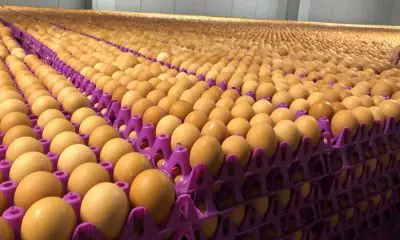The Poultry Farmers Association of Nigeria (PFAN) has raised serious concerns over the growing unaffordability of eggs, citing the worsening economic situation as a major threat to both consumers and producers.
During a recent visit to Governor Umar Namadi at the Government House in Dutse, Hussaini Gumel, Chairman of PFAN’s Jigawa State chapter, highlighted the impact of recent policy changes—particularly the removal of fuel subsidies—on the poultry sector. According to Gumel, production costs have surged, leading to a sharp drop in egg sales and threatening the viability of poultry farms nationwide.
“Since the subsidy was removed, operational costs have spiked. Many families are now struggling to meet basic needs, and eggs—once a staple—are becoming unaffordable,” Gumel said.
He noted that demand for eggs has plummeted, leaving farmers with surplus stock and mounting financial losses. “We’re barely surviving. Sales have dried up due to reduced cash flow among the public, and this poses a grave risk to our businesses,” he warned.
The current price of a crate of eggs now ranges between ₦5,700 (USD 3.60) and ₦6,000 (USD 3.70), a steep increase from previous years. These price variations reflect regional disparities and underscore the broader economic pressures facing both producers and consumers.
PFAN is calling for urgent government intervention to stabilize the industry and protect food security. Without support, Gumel cautioned, many poultry farms could be forced to shut down, deepening the crisis for millions who rely on eggs as a key source of affordable protein.


